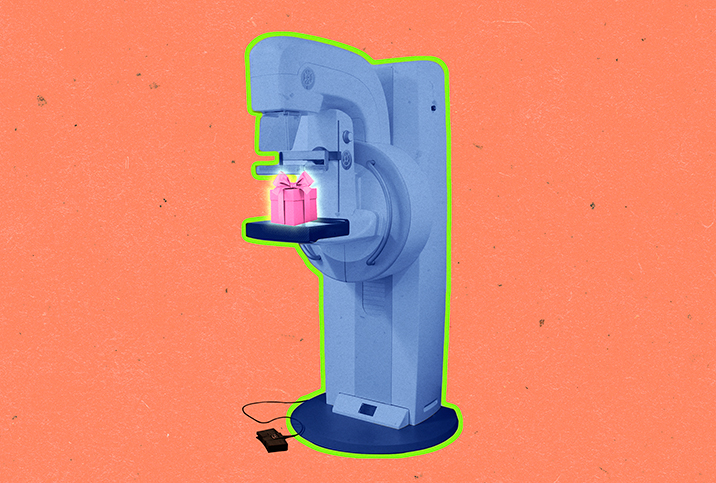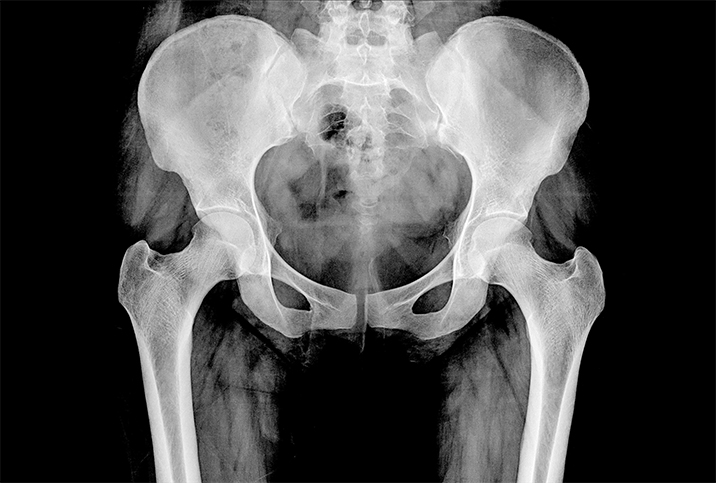The Gift of Health: Pap Smears

Life feels like it gets more frantic every year, and it's easy for our health to get shunted to the bottom of our priority list, especially during the holidays. But it's time to transform your healthcare from another annoying item on the to-do list into a little self-care gift to round out the year.
Pap smear care
As women age, the likelihood of developing certain conditions increases and so does the rate of gossip surrounding the associated tests. The much-discussed Pap test is on top of the smear pile.
We listen to friends describe their first gynecological visits with excruciating detail, clenching our legs together in response. Anecdotes about biopsies and precancerous cells make us dissociate in defense, often resulting in a pattern of refusing to confront health anxieties.
No matter how much we fear the tests themselves, preventive healthcare saves lives. All women should switch up their self-care routine by adding a Pap smear.
What do Pap smears test for?
"A Pap smear is a test of the cervical cells to determine if there is human papillomavirus [HPV], precancerous cells or cancer of the cervix," said Sameena Rahman, M.D., a board-certified gynecologist and women's health specialist at the Center for Gynecology and Cosmetics in Chicago.
There are about 13,000 new cases of cervical cancer in the United States each year, according to the Centers for Disease Control and Prevention (CDC). However, in 2018, just 66 percent of women ages 18 and older reported having a Pap smear in the previous three years.
In the U.S. currently, there are an estimated 45 million cases of HPV, which is directly linked to 99 percent of cervical cancer cases, as reported by the World Health Organization (WHO).
Women ages 21 to 29 should have a Pap smear alone every three years. You can also get HPV screening alone, which should be considered by sexually active women ages 25 to 29. Pap smears can screen for precancerous cells and cancerous cells simultaneously, and are sometimes done in combination with an HPV test.
Women whose early Pap smears come back normal are likely to only need a test every three years. For those with irregular cells, an annual test may be needed.
The Pap smear process
A Pap smear is usually performed when a primary care provider recommends one to a patient, but if you are concerned about any symptoms, it can be administered upon request.
The process is fairly straightforward, as outlined by Amir Marashi, M.D., a board-certified OB-GYN in New York and CEO of Ceré, a sexual health company:
"After the patient lies on the exam table and places her feet in the stirrups, a speculum is inserted into the vagina," he said. "The doctor then opens the speculum to separate the walls of the vagina so that the cervix can be seen. Then a small brush [cytobrush] is inserted through the speculum. The doctor lightly brushes the cervix to collect some of the cells. This sample is sent to the lab for analysis. The entire process takes a few minutes."
Some women describe the process as painless, while others find it uncomfortable. People with gynecological conditions such as vaginismus—which causes the vaginal muscles to tighten involuntarily—or endometriosis may find Pap smears painful.
Accommodations can be made, including using a smaller speculum or administering painkillers or a relaxant to help ease patients into it.
"Tell your doctor if you have had trauma that could make the Pap smear a triggering experience," Marashi advised. "Even having a difficult or painful Pap smear in the past can be traumatic. Sharing information with your doctor about past trauma might be difficult but can help them take the necessary steps to make the experience more tolerable."
It can feel like doctors and nurses should dictate all medical procedures, but even with their vast expertise, they should not perform tests without asking for consent and explaining the process. You are in control and your feelings are valid. Do not be afraid to voice any discomfort or to set clear boundaries.
"In an ideal situation, the doctor will explain the steps of the Pap test before you get undressed," Marashi said. "As the procedure is happening, they can explain each step and get consent before they do it. Regardless of whether your doctor is male or female, it can be helpful to have a chaperone in the room."
Why get a Pap smear?
"Pap smears play a role in the prevention of cervical cancer," Rahman explained. "Cervical cancer is the third-most common gynecological cancer. It is a highly preventable cancer through screening with Pap smears and with the HPV vaccine."
Pap smears help doctors to detect any abnormal cells in the cervix and determine if further testing is necessary. The cervix is the neck of the uterus.
"By detecting these cells early, doctors can intervene and prevent cervical cancer," Marashi said. "If abnormal cells are found, doctors do a colposcopy, which is a separate test to look more closely at the cervix. If precancerous cells are found during a colposcopy, the doctor will do a procedure to prevent cervical cancer from forming."
This procedure could be cryotherapy, where the abnormal cells are frozen off the cervix, or a loop electrosurgical excision procedure (LEEP), which removes abnormal cells from the cervix using a small wire loop.
Pap smears are usually performed at a doctor's or nurse's office, community health clinic or Planned Parenthood. County health departments and women's health clinics offer free or low-cost Pap smears.
With Pap smears sooner is always better.
Getting a Pap smear is important for anyone with a cervix, but if you have any family history of cervical cancer or are sexually active, the importance of receiving a regular test increases.
"If you are sexually active—even if not penis-in-vagina sex [but] oral, anal, dry humping—and you are over the age of 21, you need to be screened," Rahman added. "It's not a scary test and you can ask for accommodations if you are anxious. Open communication is key with your provider."
Undergoing medical tests feels nerve-wracking at the best of times, so it's easy to put them off and think, "I'll get it done next month." With Pap smears, however, sooner is always better.
"Perhaps they think they may not need it or won't get HPV because they use condoms or have the vaccine," Rahman said. "The HPV vaccine, like the flu vaccine, protects against the most aggressive of the HPVs but does not protect against all of them. There are potentially over 200 subtypes."
The reasons for not undergoing a Pap smear are easy to find, but preventive care is the only reason anyone should need to get it done.
What does it feel like?
Caroline Marie, a journalist and artist based in the United Kingdom, said her first Pap smear was memorable for all the wrong reasons.
"I'd been told by so many people, 'Oh, it won't hurt,' and then it did," she said. "I felt like I was kind of broken, and since then, I decided to not have anymore because I've never been sexually active, which I've been questioned relentlessly about."
Although Marie has temporarily decided not to undergo another Pap smear, she has researched her options.
"Speaking to my nurse recently, I went in for a pill check and we went over it again, and she said if I'm feeling anxious, we can get you a diazepam to help relax you beforehand," she said.
Sometimes doctors forget to lay out the process of a routine test. They get lost in the rush of a busy day or the mindless routine of performing a Pap smear. Some patients may feel like it's their fault if the process does not go smoothly, but this is untrue.
"Speak to somebody. Don't do what I did and sit on your bed and cry thinking that there is something wrong with you, because there isn't," Marie explained. "I absolutely would go back. I did, eventually, after the botched appointment."
Empower yourself with knowledge about the process and take the time to find a sympathetic doctor. Regardless of how busy their day is, the doctor should be supportive throughout the process.
Reframing the fear
"It's common to be afraid of Pap smears and to want to put them off, but it's such an important, quick tool to prevent cervical cancer, so please don't put it off any longer," Marashi said. "And once you do it, depending on the results of the test and your age group, you might not need another Pap smear for three to five years."
Confront the fear head-on and redefine the Pap smear as an empowering act of self-care. If you're still really struggling, take Rahman's advice.
"Taking deep breaths, diaphragmatic breathing, is key to ensure you are able to relax your pelvic floor during the exam," she said.
Some focused breathing and open communication with your doctor can give you the ultimate gift this festive season: a clean bill of health and a relaxed mind.




















